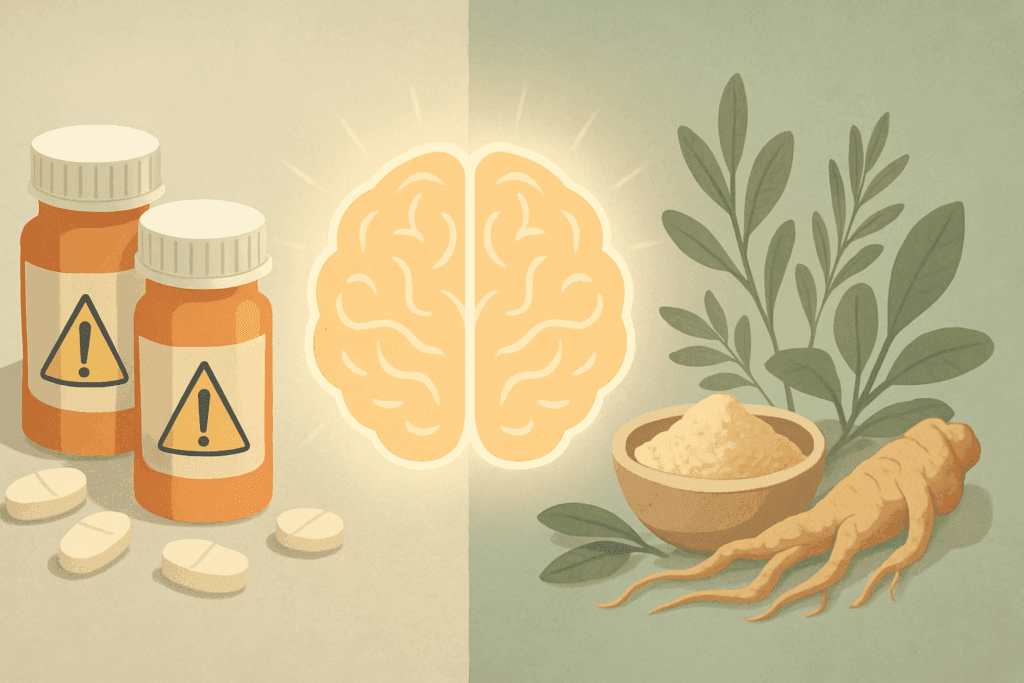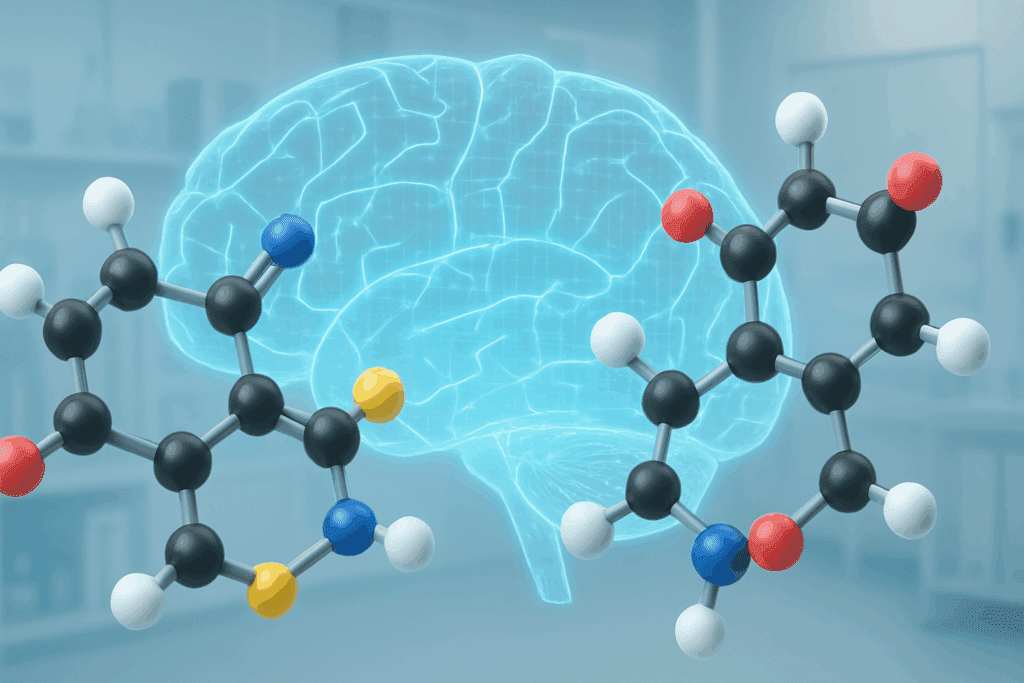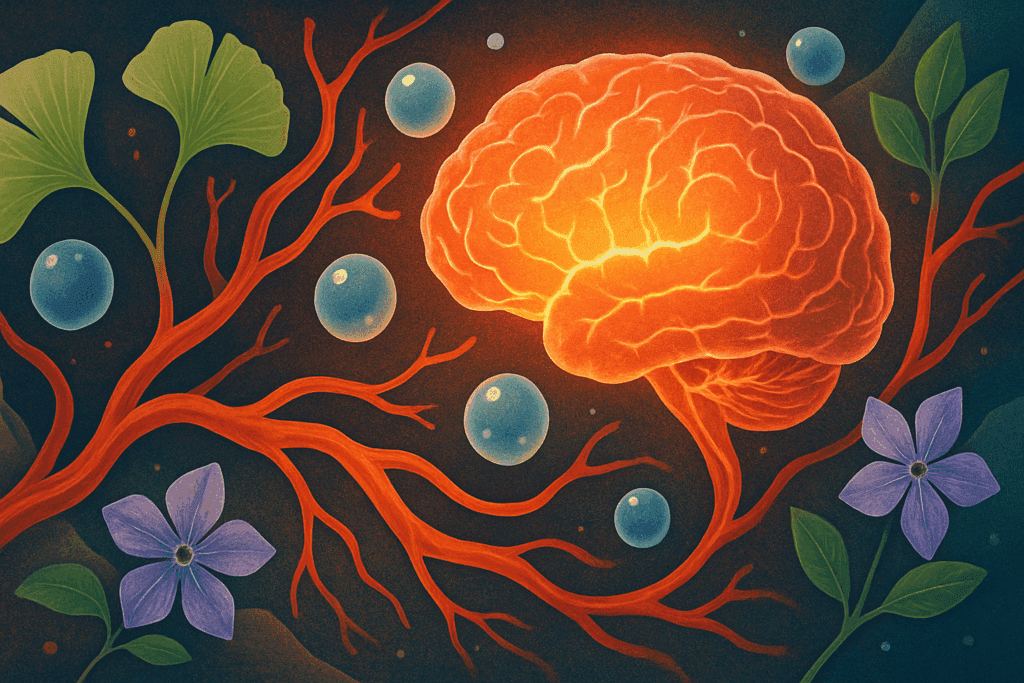In the modern world of academic rigor, professional pressure, and digital distraction, cognitive performance is at a premium. Methylphenidate, commonly known by brand names such as Ritalin and Concerta, has long been a go-to pharmaceutical option for enhancing attention and managing attention-deficit/hyperactivity disorder (ADHD). However, growing concerns over dependency, side effects, and long-term health implications have led many to seek methylphenidate alternatives that offer similar cognitive benefits with a safer profile. Whether you are exploring a methylphenidate substitute due to medical limitations, personal preference, or lifestyle considerations, a diverse range of evidence-based nootropics and cognitive enhancers exist that can support mental clarity, decision-making, and sustained focus.
You may also like: How to Choose the Best Brain Supplements for Adults: Science-Backed Ingredients That Support Focus, Memory, and Mental Clarity
Understanding the Need for Methylphenidate Alternatives
Methylphenidate is a central nervous system stimulant that primarily functions by increasing the availability of dopamine and norepinephrine in the brain. These neurotransmitters are crucial for attention regulation, impulse control, and cognitive stamina. Yet, despite its clinical efficacy, methylphenidate is not without its caveats. Side effects such as anxiety, insomnia, elevated heart rate, and potential for addiction make it a less-than-ideal long-term solution for many. Moreover, individuals without a formal ADHD diagnosis often seek cognitive enhancement without the pharmacological risks tied to prescription stimulants. This growing demand has fueled research into natural and synthetic nootropic compounds that are similar to Ritalin in their effects but differ in safety, mechanism, and scope.

What Makes a Good Alternative Medication to Ritalin?
A viable alternative medication to Ritalin should ideally replicate the positive cognitive effects of methylphenidate while minimizing potential downsides. Specifically, a good substitute should enhance focus, increase mental stamina, and improve working memory without inducing jitteriness or dependency. These alternatives can be classified broadly into three categories: natural nootropics, synthetic compounds, and lifestyle-based enhancers. Each category offers unique advantages, and many individuals find that a combination approach works best for achieving consistent and sustainable results. Moreover, cognitive health is multifaceted, so an alternative that addresses not only neurotransmitter modulation but also neuroinflammation, cerebral blood flow, and mitochondrial efficiency will likely produce more comprehensive benefits.
Natural Nootropics: A Safer Pathway to Cognitive Clarity
One of the most popular categories of methylphenidate alternatives includes natural nootropics—substances derived from herbs, roots, and other organic sources. Bacopa monnieri, for example, is a staple of traditional Ayurvedic medicine and has shown promise in improving memory retention and reducing anxiety. Clinical trials suggest that regular supplementation with Bacopa may enhance information processing speed, making it a natural contender similar to Ritalin for long-term brain support. Another noteworthy plant-based option is Rhodiola rosea, an adaptogenic herb known for its ability to combat fatigue and support mental performance under stress. Unlike methylphenidate, which can sometimes exacerbate stress responses, Rhodiola modulates cortisol levels to provide balanced cognitive stimulation.
L-theanine, an amino acid predominantly found in green tea, offers a unique blend of calm and concentration. When paired with caffeine, L-theanine promotes focused attention without the crash often associated with stimulants. Studies indicate that this combination improves task-switching accuracy and reaction time, offering a natural edge in environments demanding sharp decision-making. Collectively, these compounds serve as functional, plant-based methylphenidate substitutes that are well-tolerated by a wide range of users.
Synthetic Nootropics: Precision-Targeted Brain Boosters
For those seeking more potent options, synthetic nootropics may offer an edge. Modafinil is perhaps the most well-researched example in this class. Originally developed for narcolepsy, Modafinil enhances wakefulness and executive function without the pronounced euphoria or abuse potential seen in traditional stimulants. In peer-reviewed studies, Modafinil users have demonstrated improvements in fluid intelligence, pattern recognition, and strategic thinking. Though it is still a prescription drug, it is frequently considered an alternative medication to Ritalin due to its lower risk profile and extended half-life.
Noopept is another synthetic compound often cited as a powerful alternative. It is structurally related to racetams, a family of compounds known for their neuroprotective and cognition-enhancing properties. Noopept exerts its effects by promoting the expression of brain-derived neurotrophic factor (BDNF), a protein essential for learning and memory. Unlike methylphenidate, which primarily stimulates, Noopept supports brain plasticity and long-term cognitive resilience. Importantly, it works synergistically with other nootropics and can be incorporated into more complex cognitive enhancement stacks.

Amino Acids and Nutritional Cofactors That Sharpen Mental Focus
Beyond herbs and synthetics, certain amino acids and vitamins play a pivotal role in optimizing mental performance. Tyrosine, a precursor to dopamine, can help replenish neurotransmitter reserves depleted by stress or fatigue. It is particularly effective in high-pressure environments, such as during exams or strategic decision-making. Acetyl-L-carnitine (ALCAR) is another notable amino acid that supports mitochondrial energy production, enhances alertness, and offers neuroprotective effects.
B-complex vitamins, particularly B6, B9 (folate), and B12, are integral to brain health. These nutrients regulate homocysteine levels, support neurotransmitter synthesis, and contribute to myelin sheath integrity—a critical factor in cognitive speed and efficiency. Unlike traditional stimulants, these cofactors nourish rather than stimulate the brain, making them ideal for long-term support. They may not replicate the immediate surge of focus seen with Ritalin, but they contribute to the foundational biochemistry that allows for sustained attention and clarity.
Adaptogens and Their Role in Decision-Making Under Stress
Effective decision-making requires a calm yet alert mental state, especially under duress. Adaptogens, which help the body adapt to physical and mental stress, are increasingly recognized for their cognitive benefits. Ashwagandha, for instance, reduces cortisol levels and enhances sleep quality, indirectly boosting daytime mental acuity. Clinical research also links Ashwagandha supplementation to improvements in reaction time, task accuracy, and mental stamina.
Panax ginseng is another adaptogen with a storied history in traditional medicine. Its active compounds, known as ginsenosides, improve mental performance, reduce oxidative stress, and support cholinergic transmission. Regular use has been shown to improve working memory and cognitive flexibility, particularly in high-stress or aging populations. These benefits make adaptogens compelling methylphenidate alternatives, especially for those whose cognitive challenges stem more from stress and burnout than from neurochemical imbalance.
Enhancing Cerebral Blood Flow and Brain Oxygenation
Focus and decision-making are heavily dependent on efficient cerebral circulation. Ingredients that promote vasodilation and oxygen delivery to the brain can enhance mental performance without directly influencing neurotransmitters. Ginkgo biloba, for example, increases blood flow and has demonstrated efficacy in improving cognitive speed, memory, and attention span in clinical settings. Vinpocetine, derived from the periwinkle plant, offers similar benefits by enhancing nutrient and oxygen delivery to brain tissues.
Citicoline (CDP-choline) is another noteworthy compound in this category. It enhances phospholipid synthesis and acetylcholine production while also supporting ATP production within neurons. This multifaceted support can result in heightened mental clarity, sharper focus, and improved response time—all critical factors for those seeking a methylphenidate substitute with a comprehensive mechanism of action. Such compounds are particularly useful for individuals who are looking for holistic approaches that target multiple pathways simultaneously.

The Importance of Sleep, Exercise, and Mindfulness in Cognitive Enhancement
While supplements play a significant role, no discussion of methylphenidate alternatives would be complete without acknowledging the foundational role of lifestyle. Sleep deprivation has been shown to impair prefrontal cortex function, diminishing both focus and decision-making capacity. Practicing good sleep hygiene, including consistent bedtimes, reduced screen exposure, and melatonin optimization, can enhance natural cognition to levels comparable with pharmaceutical stimulants.
Regular physical exercise stimulates neurogenesis and releases endorphins that support mood and mental resilience. Aerobic exercise, in particular, improves hippocampal volume and working memory capacity. Additionally, mindfulness practices such as meditation and breathwork have been shown to increase gray matter density in brain regions associated with attention and executive function. When integrated with supplement-based strategies, these habits can form a robust framework for sustainable cognitive enhancement that rivals or exceeds the benefits of traditional stimulant medications.
Personalizing the Approach: Finding the Right Balance
Cognitive enhancement is not a one-size-fits-all endeavor. What works brilliantly for one individual may yield modest or even adverse results for another. Factors such as genetic polymorphisms, sleep quality, diet, and stress levels all influence how one responds to different nootropics. Therefore, finding the most effective methylphenidate substitute often involves a process of self-experimentation, guided by a careful assessment of personal needs, goals, and biological responses. Keeping a cognitive performance journal, experimenting with timing and dosages, and consulting with a healthcare provider can significantly enhance the efficacy and safety of your personalized approach.
Stacking—the practice of combining multiple cognitive enhancers—is another strategy that can amplify benefits while minimizing side effects. For example, pairing L-theanine with caffeine can yield calm focus, while stacking Noopept with citicoline may enhance both memory and attention. These combinations can mimic the multifaceted benefits of methylphenidate without relying on a single, potent compound. The key is to approach stacking with intentionality, ensuring synergy rather than overstimulation.
Frequently Asked Questions: Exploring Methylphenidate Alternatives for Cognitive Clarity and Decision-Making
1. How can lifestyle choices enhance the effectiveness of a methylphenidate substitute?
While many seek a pharmacological methylphenidate substitute, integrating certain lifestyle modifications can significantly enhance the results. Regular aerobic exercise, mindfulness-based stress reduction (MBSR), and consistent sleep hygiene can all bolster attention and working memory. These lifestyle choices regulate dopamine and norepinephrine levels—key neurotransmitters involved in focus and executive function—thus complementing any alternative medication to Ritalin. For example, combining L-theanine and green tea with daily brisk walking may offer synergistic cognitive benefits without the overstimulation associated with stimulants. It’s this kind of integrative approach that often yields more sustainable results, particularly for individuals with mild cognitive impairment or early executive dysfunction.

2. Are there natural compounds similar to Ritalin in terms of cognitive impact without being stimulants?
Yes, several natural compounds are considered similar to Ritalin in their cognitive effects without sharing its stimulant profile. For example, citicoline (CDP-choline) enhances acetylcholine synthesis and supports brain cell membrane repair, often resulting in sharper memory and mental energy. Rhodiola rosea, an adaptogenic herb, improves cognitive stamina under stress without the jitteriness common to stimulants. These agents work on entirely different pathways from methylphenidate, making them viable methylphenidate alternatives for those sensitive to sympathetic nervous system activation. Importantly, they support neuroplasticity and mitochondrial function, which is ideal for long-term brain health.
3. What are the potential long-term risks of relying on methylphenidate-based treatments exclusively?
Relying exclusively on methylphenidate or a similar stimulant over time may lead to downregulation of dopamine receptors, which could diminish baseline motivation and focus in the absence of medication. Additionally, long-term stimulant use has been linked in some studies to elevated blood pressure, sleep disturbances, and even emotional blunting in some patients. This makes a strong case for exploring a methylphenidate substitute that supports neurochemical balance without overstimulating the central nervous system. Adopting a more balanced regimen—including nootropics like bacopa monnieri or lion’s mane—may reduce these risks while still promoting clarity and concentration. This underscores the importance of periodically re-evaluating one’s therapeutic plan with a clinician.
4. Can combining multiple mild cognitive enhancers offer a safer alternative to Ritalin?
Absolutely. Stacking multiple mild nootropics—a practice common in biohacking communities—can offer cumulative benefits that approximate the performance-enhancing effects of Ritalin without its side effects. For instance, combining tyrosine (a dopamine precursor) with acetyl-L-carnitine and omega-3 fatty acids may improve focus, processing speed, and mental stamina. This approach creates a more physiologically balanced enhancement, making it a compelling alternative medication to Ritalin for individuals prioritizing safety and long-term brain health. However, stacks should always be evaluated for interactions and tested in small doses first. This method also fosters self-awareness and engagement with one’s own cognitive needs and biochemistry.

5. What overlooked populations could benefit from methylphenidate alternatives but are often excluded from clinical discussions?
Older adults with early-stage cognitive decline or those with subjective cognitive complaints (SCCs) often go overlooked in discussions about cognitive enhancers. These individuals may be wary of stimulant medications but could greatly benefit from a safe methylphenidate substitute such as phosphatidylserine or B-vitamin complexes. Furthermore, professionals in high-pressure environments like air traffic control or emergency medicine may seek similar to Ritalin performance boosts without regulatory hurdles. Customized regimens using evidence-based nootropics may help these groups maintain performance under stress without risking dependence or sleep disturbances. Addressing these niche use cases reflects the growing need for flexible cognitive support solutions beyond ADHD.
6. What role does neurofeedback play in enhancing the results of a non-stimulant cognitive enhancer?
Neurofeedback, a form of brain training using real-time EEG data, has shown promise in enhancing attention, memory, and emotional regulation. When combined with a non-stimulant methylphenidate alternative such as ashwagandha or L-theanine, the improvements may be more pronounced and longer-lasting. This synergy arises because neurofeedback strengthens cortical control mechanisms, while supplements support neurotransmitter balance and stress modulation. Over time, individuals may require less of the supplement to maintain results—making it a scalable and sustainable option. This is especially promising for individuals with executive function issues who wish to avoid pharmaceutical dependency.
7. How might alternative medication to Ritalin support individuals with decision-making fatigue?
Decision-making fatigue, common among executives, caregivers, and students, stems from repeated cognitive strain and depletion of mental energy. An alternative medication to Ritalin like panax ginseng or tyrosine can replenish dopamine reserves and support task-switching efficiency, mitigating the cognitive wear-and-tear associated with daily decisions. Additionally, adaptogens like holy basil may buffer the hormonal response to stress, indirectly preserving mental clarity. This makes a tailored nootropic regimen particularly useful for professionals who require sustained, high-quality decisions throughout the day. Unlike stimulants, these options often improve resilience without promoting cognitive crashes or emotional volatility.
8. Are there emerging technologies that could work alongside methylphenidate alternatives for better outcomes?
Yes, several technologies—such as transcranial direct current stimulation (tDCS) and wearable EEG neurotrackers—are being tested as adjuncts to methylphenidate alternatives. tDCS, for example, can enhance prefrontal cortex function and has been shown to increase working memory in clinical trials. When paired with nootropics like sulbutiamine or magnesium threonate, users may experience enhanced alertness and neuroplasticity. These combinations offer a forward-thinking, non-invasive path for cognitive optimization that’s becoming increasingly accessible to the public. As technology continues to evolve, these adjunctive tools may redefine how we approach non-stimulant cognitive enhancement.
9. What are the psychological benefits of choosing a non-stimulant cognitive strategy over methylphenidate?
Opting for a non-stimulant regimen often aligns with a psychologically empowering mindset: one of balance, sustainability, and self-mastery. Users frequently report feeling more emotionally grounded and less anxious compared to their experience with traditional stimulants. A methylphenidate alternative like bacopa monnieri may not deliver immediate intensity, but it encourages long-term memory consolidation and cognitive resilience. This can foster confidence and patience, two qualities often diminished by quick-fix mental performance aids. In turn, this approach supports a healthier relationship with one’s cognitive process and mental wellness overall.
10. What does the future look like for methylphenidate substitutes in clinical and wellness settings?
The future is bright for methylphenidate substitutes, particularly as precision medicine and neurodiversity awareness expand. Personalized brain health assessments—using genetic testing, microbiome profiling, and AI-guided diagnostics—will enable practitioners to tailor interventions that go far beyond “one-size-fits-all” prescriptions like Ritalin. This shift will likely elevate the role of alternative medication to Ritalin in both clinical and holistic wellness settings. Additionally, increased research funding into natural cognitive enhancers and ethical nootropic use in education and workplaces will help validate these alternatives. Over time, society may adopt a more integrative, informed, and individualized view of cognitive enhancement rooted in both science and self-awareness.

Final Thoughts: Choosing Safer, Smarter Paths to Mental Clarity
The search for effective methylphenidate alternatives is not merely a trend but a necessary evolution in the way we approach cognitive health. With growing awareness of the side effects and long-term risks associated with stimulant medications, more individuals are seeking holistic, evidence-based options that support focus and decision-making without compromising well-being. From natural herbs like Bacopa monnieri to cutting-edge synthetics like Modafinil and Noopept, the range of available substitutes is both expansive and promising. These alternatives, when chosen wisely and used consistently, can offer the cognitive uplift that so many seek from Ritalin, but with a gentler and often more sustainable impact.
Ultimately, the best alternative medication to Ritalin is one that aligns with your lifestyle, supports your brain’s unique chemistry, and enhances your ability to meet the demands of daily life with clarity and composure. By understanding the science behind each compound, experimenting responsibly, and prioritizing long-term brain health, you can build a customized cognitive enhancement strategy that empowers you to think more clearly, act more decisively, and live more intentionally.
Further Reading:
Cognitive enhancers for the treatment of ADHD
Exploring the use of cognitive enhancement substances among Portuguese university students


